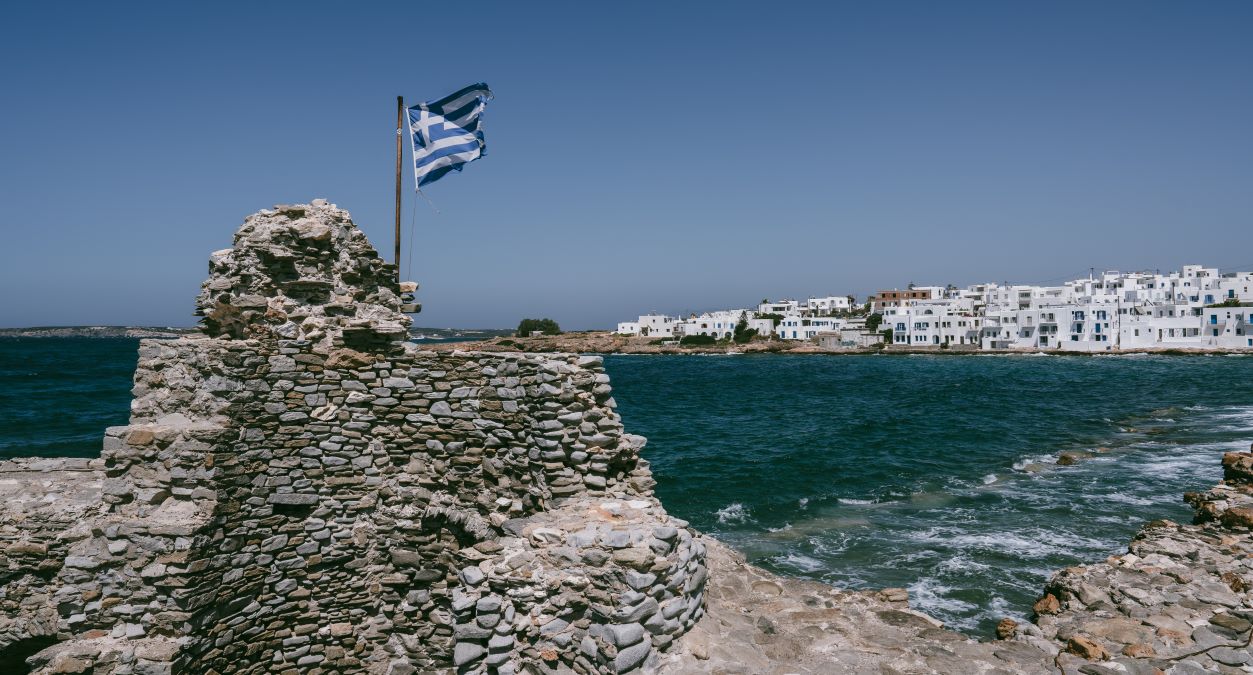Greece Unveils Ambitious Modernization of Its Armed Forces
On April 2, Greek Prime Minister Kyriakos Mitsotakis announced in parliament that the country will invest €25 billion as part of a 12-year defense strategy... Read More The post Greece Unveils Ambitious Modernization of Its Armed Forces appeared first on The Daily Signal.

On April 2, Greek Prime Minister Kyriakos Mitsotakis announced in parliament that the country will invest €25 billion as part of a 12-year defense strategy in the “most drastic transformation in the history of the country’s armed forces.”
Greece has decided to enhance its high-tech warfare technologies, including an overhaul centered on a new anti-aircraft defense system called “Achilles Shield.”
Defense Minister Nikos Dendias stated that Greece aims to reduce reliance on conventional fleets and shift to a high-tech, networked strategy focused on mobile, AI-powered missile systems, drone technologies, and advanced command units.
The Greece—Turkey dispute
One of the most significant internal threats among NATO member states is the long-standing territorial dispute between Greece and Turkey. The two countries continue to disagree over maritime boundaries in the Mediterranean Sea and territorial claims in the Aegean Sea. According to the United Nations Convention on the Law of the Sea, territorial waters may extend up to 12 nautical miles, while exclusive economic zones can extend up to 200 nautical miles.
Currently, both Greece and Turkey enforce territorial waters up to six nautical miles. However, Greece argues that it is entitled to extend its territorial waters to the full 12 nautical miles, a claim that Turkey strongly opposes. Tensions are further heightened by Turkey’s exploration for oil and gas in contested waters, as well as its obstruction of an electricity cable project intended to link the power grids of Greece, Cyprus, and Israel.
These overlapping claims have led to increased hostility and occasional military standoffs between the two neighboring NATO members, resulting in a significant military buildup in the Aegean Sea. These conflicts have also strained Turkey’s relations with the United States, particularly after the country was removed from the F-35 fighter jet purchasing program in 2019 following its purchase of the Russian-made S-400 missile defense system.
Achilles’ Shield
The Achilles’ Shield is the most significant initiative within Greece’s rearmament program and is expected to be operational by 2027. It consists of a multilayered air defense system designed to counter a wide range of threats, including aircraft, ballistic, cruise missiles, UAVs, naval platforms, and submarine-based threats. Athens is currently negotiating with Israel to acquire the €2.8 billion defensive dome system and is increasingly strengthening its relationship with Israel amid rising tensions with Turkey.
Although Israel remains the leading contender, Greece has also initiated consultations with other NATO member states to explore complementary or alternative systems for both the Achilles’ Shield and the broader air defense overhaul. These efforts represent a decisive investment in strategic autonomy, reduce reliance on outdated systems, and will significantly bolster the defense of NATO’s eastern flank.
Among the few planning to boost defense spending
Dendias emphasized that this modernization effort represents a “complete shift” in the country’s defense approach. Currently, only five NATO member states—including the United States, Greece, Poland, Estonia, and Latvia—allocate more than 3.0% of their gross domestic product to defense. While an increasing number of members are reaching the 2.0% defense spending guideline agreed upon at the 2014 NATO Wales Summit, not all have done so.
In response to evolving security challenges, President Donald Trump has called on NATO allies to raise their defense spending to 5.0% of GDP, an even more ambitious target than during his previous term.
The post Greece Unveils Ambitious Modernization of Its Armed Forces appeared first on The Daily Signal.










